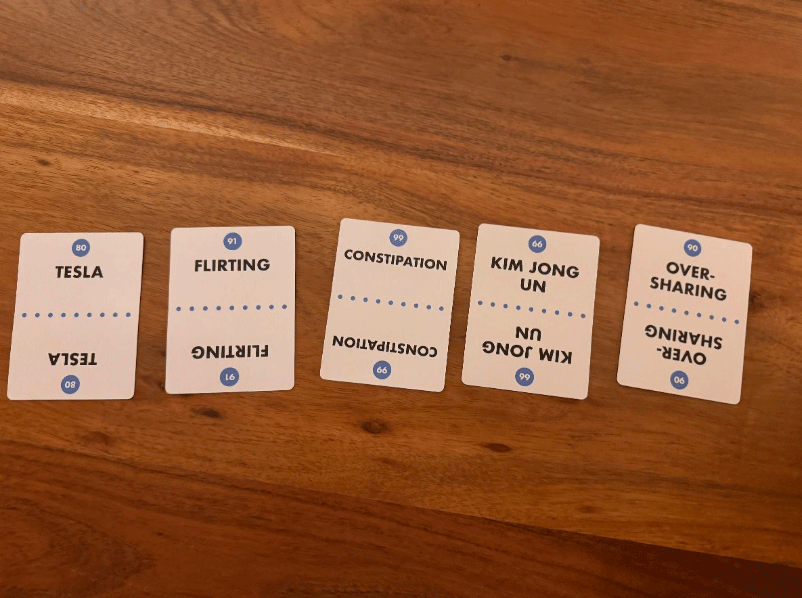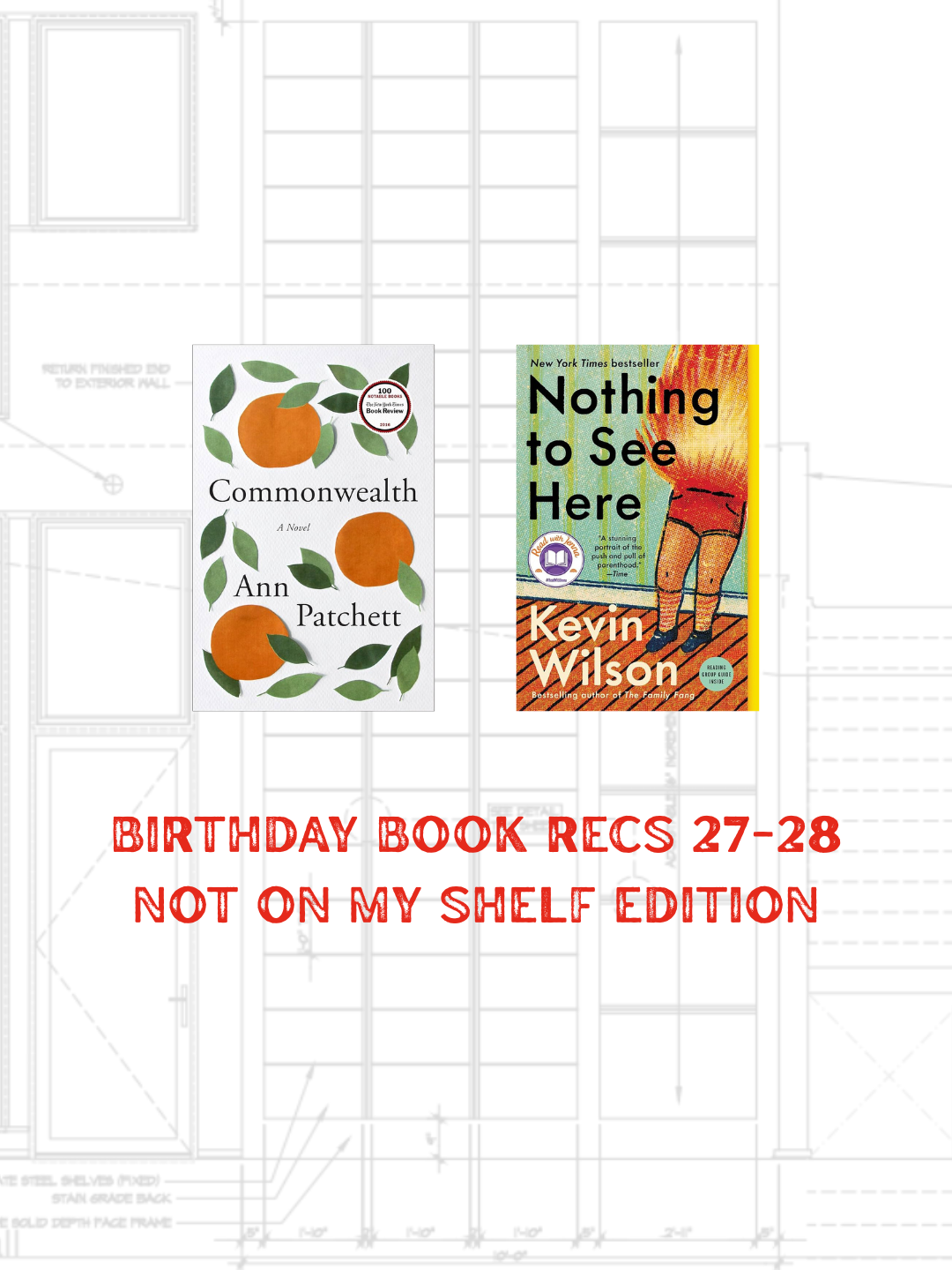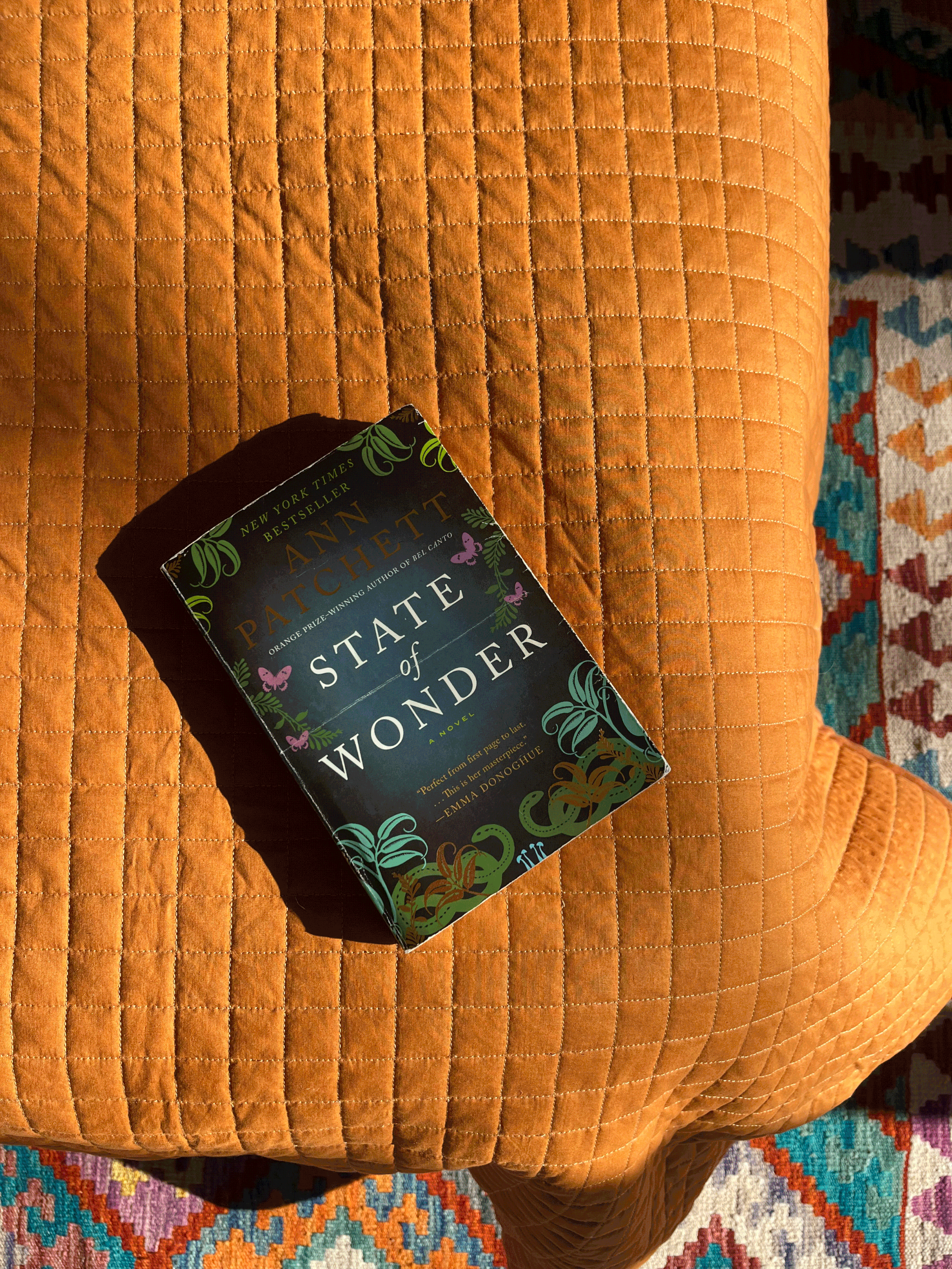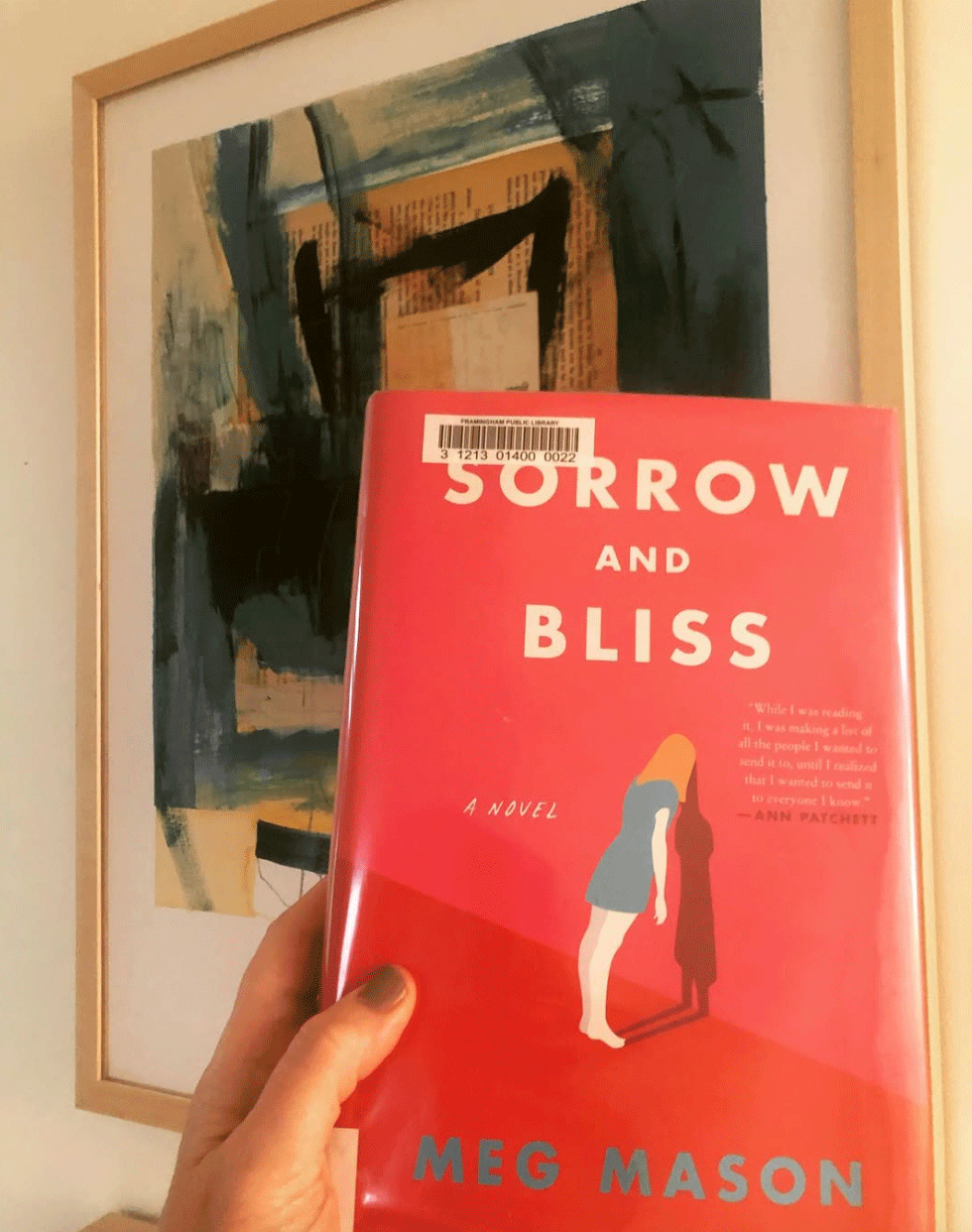
READ ALL ABOUT IT
Since 2012, I’ve been writing about books. And the act of reading. And the importance of story and narrative. But, mostly, the underlying theme of all I write is how taking a moment to stop and digest some longform text — instead of scrolling, instead of watching a video, instead of multitasking — can be one of the most grounding things we can do for ourselves. Here’s the one-stop online home for all this writing.
You can read more about me and my work by moseying over here. Want to peruse periodic “essay drops” — excerpts from my work-in-progress essay collection about Homesickness? Here ya go.

On Social Captal & AI
From Newsletter Issue No. 23:
On New Year’s Eve, we got together with friends. Aside from the general joviality of a post-Christmas catch-up with some of our favorite people, we played a game called Priorities. It’s fast and easy, and the basic gist is that one player at a time is given five cards, each with a very specific “thing” on it, and then proceeds to prioritize them in order of how much they value/like these things.

Birthday Book Recs 27-28/50 : Commonwealth by Ann Patchett and Nothing to See Here by Kevin Wilson
Birthday Book Recs: 27-28/50
Commonwealth by Ann Patchett
Nothing to See Here by Kevin Wilson

State of Wonder: A Posture for a New Year
When you scan the books scattered among the shelves for something
— you haven’t yet read
— isn’t anything like this collection of autofiction* that all at once became ready to pick up at the library and is now accumulating on your side of the bed

A Parlor Read
Have you noticed publications (Atlantic, NYT) touting the benefits of reading aloud? I’ve enjoyed seeing these headlines because the first community literary event I produced in 2019 was just that: a read-aloud. It was called Book Covers (like a cover band, but “cover readers”), and there was a theme and a panel discussion following the readings — which were done by prominent community members and authors — + a run sheet + a sound system + press releases etcetcetc.

Moon Tiger
Once in a while, I’ll come across a video of an over-the-top church service. The latest is a pastor making his “stage entrance” via makeshift rollercoaster. Okaaay! Welcome to the commodification of something sacred. “Commodifying” something is maybe just another way of saying “treating as a finite good” or perhaps “cheapening something into a more digestible state.”

Life’s a Journey
From Newsletter Issue No. 18:
In 1985, a movie called The Journey of Natty Gann debuted, and I thought it was the Greatest Thing Ever. I even wrote about it in the journal my teacher required us to keep. (That said, I think on this particular day all I wrote is “I watched a movie called The Journey of Natty Gann.”) It turns out that John Cusack was in it, but my fourth-grade self had no idea who he was or that he was on his way to being iconic Lloyd Dobler in Say Anything. I saw it with my mom in a theater in Seattle’s Southcenter mall, which was nowhere near our home, so the only thing I can think of is that we saw it en route to or from my grandparents’ house. Ergo, it truly felt like a proper “outing” — maybe we were doing some back-to-school shopping. I have a vague recollection of being in a fussy mood (not uncommon in that era, I’m sorry to say, especially when it came to clothing), but the film calmed me. Call it my journey from brat (Bratty Gann?!) to curious 9-year-old film connoisseur.

What Phones are Doing to Reading
Here’s an article that popped up in my inbox: “What Phones are Doing to Reading.” For much of the piece, writer Jay Caspian Kang reiterates what we already know. We are too used to scrolling and too used to seeking the “knowledge” of an algorithm, and in general, these qualities make us abandon books more readily if we’re not engaged straight away and they also cause us to want to skim and tap — “a quick calcification of muscle memory,” he writes.

Tom Lake
I recently read a New Yorker piece titled “Becoming You: Are you the same person you were when you were a child?” In it, writer Joshua Rothman references a study of 1,037 individuals in New Zealand who are interviewed by a psychologist periodically from childhood to midlife in an attempt to understand humans’ connections with their “past selves.” (This kind of thing fascinates me.)

Wellness
I’ve been trying to think of how to describe books like Wellness by Nathan Hill. The first thing that comes to mind is that novels like this are ones that I “gobble up.” They are “smart” and “literary” and often on the longer side. But they aren’t overly taxing. They are generally page-turners, and sometimes you can skim a tiny bit in parts. There are dramatic inflection points, but you know that the author spent a lot of time trying to figure out where best to place them because often these novels involve time shifting. In general, these “gobble up” books span a few generations of a family’s history even if “family dynamics” is not the main focus of the plot. (Wellness is essentially a look at the psychology of love using a middle-aged marriage as its foil.) The authors’ ability to create spot-on characters drawing from contemporary tropes, nuances, and cultural references without stooping to stereotyping is A+. They’re just really, really well-written stories.

I Finally Read American Dirt
From Newsletter Issue No. 13:
Remember when a little novel called American Dirt by Jeanine Cummins was published in 2020? It was a much-anticipated work of fiction that was meant to shed light on and give voice to people who found themselves in the crosshairs of the migration crisis happening at the border between the United States and Mexico. Oprah selected it for her book club. Stephen King provided a blurb and called American Dirt “Extraordinary.” Sandra Cisneros (family roots in Mexico) and Julia Alvarez (family roots in the Dominican Republic) both praised the book.

If I Survive You
“We can do [survive] hard things!” (Name the wannabe psychologist who likes to say this.) While I for sure don’t disagree with that statement, I suppose it doesn’t resonate with me (and often makes me feel kinda sad) because there always seems to be a whiff of oblivious privilege involved. While everyone needs a boost once in a while — and some people of course are in seemingly impossible (and even dangerous) situations where a “pep talk” like this might give them that extra resolve — I always wonder: Is this the first time some people have been told and encouraged that, yes, they can get through a situation? People have “survived” (done “hard things”) forever. Feel free to look up the Darién Gap in Panama and the story about the young girl who got separated from her mother there.

The Latecomer
A quick primer if your book club is going to read The Latecomer by Jean Hanff Korelitz. (Which it totally should! This would be a great book club book.)

Burnt Sugar
How do you feel about book blurbs?

Sorrow and Bliss
Planning on tearing through Sorrow and Bliss by Meg Mason this weekend.

Music to My Eyes: A Lifely Read Wrapped 2019 (aka My Top Books of the Year)
I love to read (obviously), but I also love to listen to music. I’m a Spotify user, and something the Swedish company does toward the end of every year is provide Premium users (fancy!) a graphically appealing “snapshot” of their year via music. Therefore, early December brings a flurry of people sharing factoids about their listening habits.

